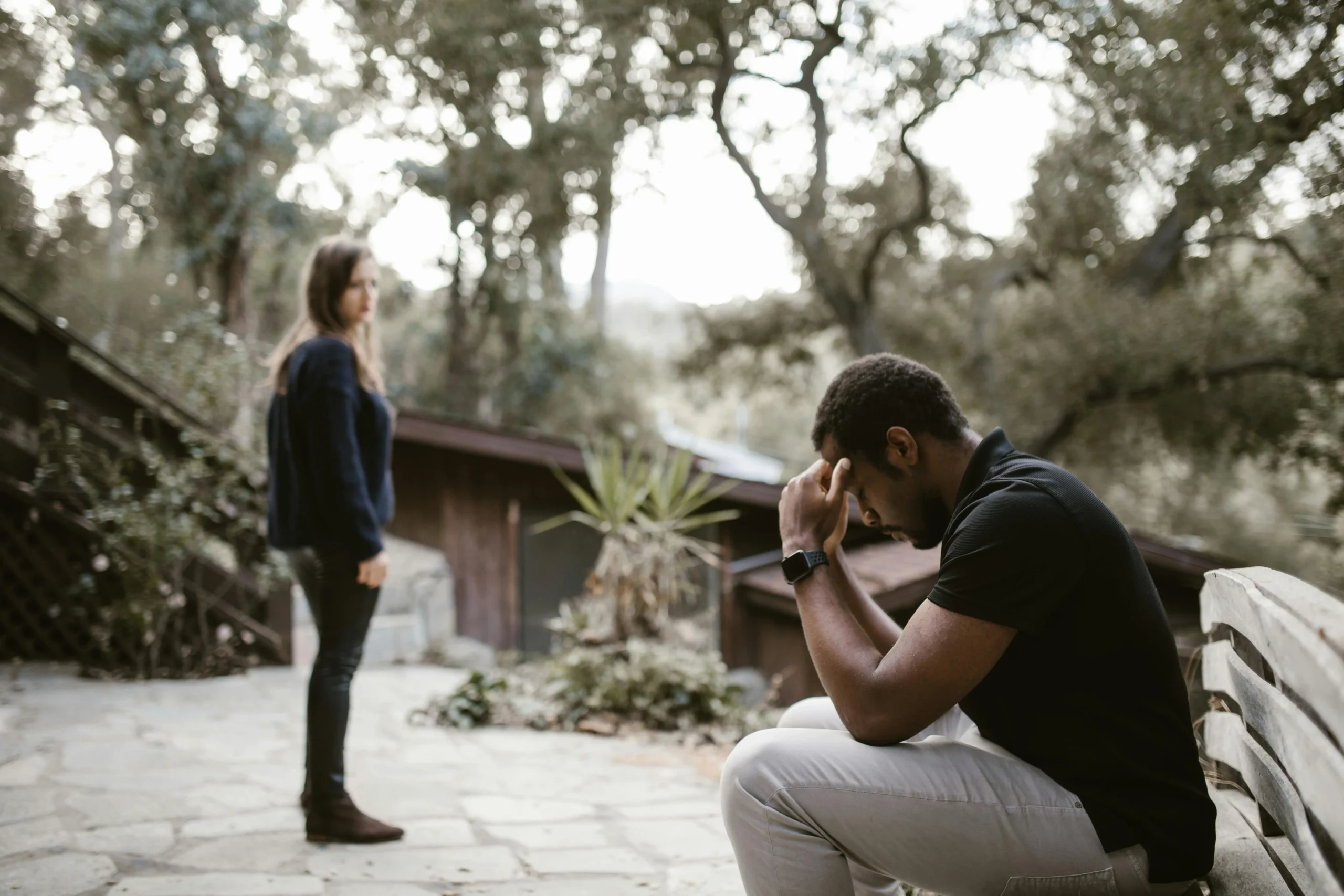Introduction: Why Emotional Triggers in Relationships Can Make or Break Us
Let me ask you something real. Have you ever found yourself reacting way too strongly to something your partner said—only to regret it later and wonder, “Where did that even come from?” That, my friend, is the work of emotional triggers in relationships.
These are like hidden triggers—a tone, a word, a silence—that instantly set off a wave of emotion. Sometimes it’s anger. Sometimes it’s panic. And most of the time, it’s confusing—for both you and your partner. I’ve been there, and trust me, you’re not alone.
Recognizing these emotional triggers is not just some “relationship hack.” It’s essential. Because without that awareness, we unknowingly replay the same emotional patterns that lead to hurt, arguments, and emotional distance. But here’s the flip side: once you learn how to identify emotional triggers in a relationship, you actually build intimacy, not destroy it.
So in this blog, I’m going to walk you through exactly what these triggers are, why they happen, how they affect romantic relationships, and most importantly, how you can manage them in a way that leads to healing—not more drama.
Let’s start with understanding what we’re actually dealing with.
Understanding Emotional Triggers in Relationships
What Are Emotional Triggers in Relationships?
In simple terms, emotional triggers in relationships are those moments when something small sparks a big emotional reaction. It could be your partner canceling plans last minute, giving you a certain look, or even using a phrase that reminds you of a past argument. Suddenly, you’re not in the present—you’re emotionally transported to another time, another hurt.
Let me give you a real-life example. I once had a partner who would go silent during arguments. Not yell, not explain—just total shut-down mode. Every time that happened, I would spiral into anxiety and self-blame. Later, I realized this was triggering my childhood experiences of being ignored when I needed comfort. That silence wasn’t just silence—it was abandonment to me.
This is why managing emotional triggers in relationships is so crucial. These triggers aren’t just random—they’re deeply tied to emotional wounds we carry from past experiences, especially unresolved ones.
As noted by mental health professionals at Sunshine City Counseling, emotional triggers often stem from unresolved issues, childhood wounds, or past relationship traumas. These triggers, such as feeling abandoned or criticized, are connected to deep-rooted emotions that can easily spark intense reactions in present relationships (Sunshine City Counseling).
Why Do Emotional Triggers in Relationships Happen? The Brain-Body Connection
Here’s what’s fascinating—and something I learned through therapy and research. Our emotional reactions are often tied to a part of the brain called the amygdala. It’s responsible for detecting threats and launching our survival response: fight, flight, or freeze.
So when we’re triggered, the amygdala reacts as if we’re in danger—even if the threat is just a raised voice or a misunderstood text message. That’s why you may suddenly feel like you need to defend yourself, shut down, or run away—your brain thinks it’s protecting you.
But in the context of a relationship, this can be incredibly confusing. You’re not under physical threat, but your nervous system thinks otherwise. Understanding this can help you start to separate what’s real now from what’s echoing from the past.

Common Emotional Triggers in Relationships That Cause Conflicts
Here are some of the most common emotional triggers in relationships that cause conflicts, many of which I’ve personally faced or seen in others:
Feeling Ignored or Dismissed
If your partner cuts you off mid-sentence or scrolls through their phone while you’re sharing something important, it might trigger a deep fear of not being valued.
Criticism or Rejection
Even constructive feedback can feel like an attack if you grew up in a household where love felt conditional or overly critical.
Fear of Abandonment
Something as small as a delayed text reply or a canceled date might unleash fears of being left or replaced—especially if you’ve experienced past betrayal or emotional neglect.
Loss of Control or Autonomy
If you feel pressured or cornered into a decision, that can trigger intense resistance—particularly if you’ve experienced emotional manipulation before.
Reminders of Past Trauma
Sometimes, your partner unknowingly echoes the behavior of someone who hurt you before. This can awaken old pain that hasn’t been fully processed yet.
Learning to identify emotional triggers in relationships is the first real step toward change. When we understand the “why” behind these reactions, we can stop blaming ourselves—or our partners—and start healing.
The Impact of Emotional Triggers on Relationships
Communication Breakdowns and Reactive Conflict
Unmanaged emotional triggers in relationships are like landmines in your love life. One wrong step, and BOOM—an argument explodes out of nowhere. I’ve been in that cycle where one misunderstood comment spirals into hours of silence or shouting, and afterward, you both feel drained and disconnected.
The problem isn’t always what is said, but how it’s received through the lens of unhealed emotional wounds. When you or your partner are constantly reacting from a triggered place, it’s nearly impossible to have healthy communication. You’re not responding—you’re defending.

Erosion of Emotional Safety, Trust, and Intimacy
If these reactions go unchecked, it’s not just arguments that happen—it’s the quiet stuff too. You stop being open. You walk on eggshells. You pull away to avoid getting hurt.
Emotional triggers that cause relationship conflicts often create emotional walls. Instead of turning toward each other, you turn away. And once emotional safety is gone, trust and intimacy begin to erode. You stop sharing your needs, your fears, even your dreams—because vulnerability starts to feel unsafe.
This is why managing emotional triggers in relationships is not a luxury—it’s a necessity. When you handle triggers with awareness and compassion, you protect the very foundation of the relationship.
Research from the National Center for Biotechnology Information highlights that negative emotional experiences, particularly those rooted in past wounds, can disrupt emotional interdependence between partners. This breakdown in emotional safety is what often leads to withdrawal, defensiveness, and increased conflict within relationships (NCBI).
Opportunity for Connection and Growth
Here’s the part I love talking about: it doesn’t have to stay this way.
The very thing that causes conflict—your emotional triggers—can also lead to deeper connection. When you and your partner become aware of each other’s emotional pain points, and you choose to handle them with care, something beautiful happens. You start healing together.
I’ve seen this happen in one of my client’s lives. When they finally opened up about why certain things hurt them, the partner didn’t dismiss it—they leaned in. They asked questions. They softened. And because of that, they felt safe enough to do the same for their partner.
This is how we reframe emotional triggers in relationships: not as problems, but as portals. They’re not just flare-ups—they’re invitations. To understand each other more deeply. To heal what was never healed before. To grow together, instead of apart.
Managing Emotional Triggers in Relationships: Step-by-Step
Take Ownership of Your Triggers
Here’s the hard truth: no one else is responsible for healing our emotional triggers. I used to fall into the trap of thinking, “If only my partner didn’t do that, I wouldn’t feel this way.” But that line of thinking only leads to blame—and blame kills intimacy.
Taking ownership doesn’t mean blaming yourself either. It means acknowledging that the intense emotion you feel is yours to understand and manage. When I started saying things like, “I feel triggered when this happens, and I want to understand why,” it changed the tone of our conversations. It turned conflict into curiosity.
By recognizing that emotional triggers in relationships are often deeply personal and sometimes irrational, we move from reacting to responding. That shift is everything.
Communicate Without Blame or Shame
Once you’ve recognized your triggers, the next step is to talk about them—but without pointing fingers. This is where most couples get stuck. I used to say, “You always make me feel like I’m not enough,” which only made my partner feel defensive.
I learned to reframe it with non-blaming language. Something like, “When this happens, I notice I feel really anxious because it reminds me of a past experience. I know it’s not your fault, but I wanted to share it.”
This kind of open, vulnerable sharing invites connection, not conflict. And it’s a powerful part of managing emotional triggers in relationships. It helps your partner understand your emotional blueprint—and vice versa.
Create Supportive Coping Agreements as a Couple
This was a game-changer in my relationship. Once we started learning each other’s triggers, we created small but powerful agreements to help navigate tough moments.
For example:
- Using a code word when one of us feels overwhelmed.
- Agreeing to pause the conversation and revisit it when emotions settle.
- Offering reassurance, like, “I’m not leaving, I just need a moment to think.”
These agreements become safety nets. They reduce the risk of escalation and help both partners feel supported instead of attacked. If you’re wondering how to identify emotional triggers in relationships and actually use that knowledge for growth—this is one of the most effective tools.
Use Mindfulness to Stay Grounded in the Moment
When you’re triggered, your body is in survival mode. Your heart races, your breath shortens, and your thoughts spiral. That’s your brain’s amygdala firing up. But mindfulness is like hitting the emergency brake on a runaway emotional train.
Whenever I feel a surge of anger or anxiety, I pause and breathe. I literally place my hand over my heart and say, “You’re safe. This isn’t the past. Breathe.” It might sound cheesy, but it works. Grounding techniques like deep breathing, body scans, or even stepping outside for fresh air can help regulate your nervous system.
Heal Core Beliefs That Fuel Reactivity
Here’s where it gets deep. Many of our triggers are fueled by old, subconscious beliefs: I’m not lovable. I’ll always be abandoned. I have to be perfect to be safe. Sound familiar?
These beliefs often take root in childhood or past relationships and can silently control our reactions. Healing them isn’t easy—but it’s absolutely possible. Whether through therapy, inner child work, or reading books like “The Body Keeps the Score” by Bessel van der Kolk, this work has the power to change your emotional blueprint.
When you work on healing from emotional triggers in relationships, you free yourself from patterns that no longer serve you—and that freedom is priceless.
Practice Mutual Vulnerability
One of the most beautiful moments in my relationship was when I said, “Here’s what hurts me, and I don’t expect you to fix it—I just want you to know.” And then my partner did the same. That kind of mutual vulnerability builds trust that no amount of “perfect behavior” ever could.
Invite your partner into your inner world, and make space for theirs too. It doesn’t have to be dramatic. Sometimes it’s just a quiet, “That made me feel a little exposed. Can we talk about it?”
In long-distance relationships, this kind of emotional honesty is even more important. When physical proximity isn’t there to reassure us, our words become the bridge between fear and safety.
Seek Therapy When Necessary
There’s no shame in needing help. In fact, some emotional triggers—especially those tied to trauma or attachment wounds—need the support of a skilled therapist. I’ve been there. And I can say from experience: therapy gave me the language and tools I didn’t even know I was missing.
Therapy techniques for emotional triggers in relationships often include couples counseling, somatic experiencing, EMDR, inner child work, or emotionally focused therapy (EFT). These methods are designed to go beneath the surface and gently heal what’s been locked away for years.
If your relationship feels like it’s constantly walking through a minefield of unspoken pain, please know that you’re not broken—and you’re not alone. Healing is possible.

Conclusion: Turning Emotional Triggers in Relationships Into Trust
If there’s one thing I’ve learned over the years, it’s this: emotional awareness isn’t just a relationship skill—it’s the foundation of emotional intimacy. When we take the time to understand and manage emotional triggers in relationships, we give our love a fighting chance to not just survive, but thrive.
We often think that love should be effortless, that if someone is “right” for us, we shouldn’t feel triggered. But that’s a myth. The truth is, every meaningful relationship will activate your emotional pressure points at some point. What matters is not avoiding triggers—it’s what you choose to do when they show up.
Healing isn’t a solo mission. It’s a shared journey. Your partner doesn’t need to be perfect—they just need to be willing. And so do you. Because when two people commit to emotional honesty, accountability, and growth, even the messiest moments become meaningful.
So here’s your takeaway: Start where you are. You don’t need to have all the answers. Just begin by noticing your patterns, getting curious instead of reactive, and having one honest conversation at a time. Use that insight to build trust, not just with your partner—but with yourself.
And if you’re in a relationship where emotional distance, conflict, or past wounds keep surfacing, remember: managing emotional triggers in relationships isn’t about suppressing emotion. It’s about transforming it. One trigger at a time.
You’ve got this. And if you ever feel overwhelmed, reach out—to a friend, a therapist, or someone who sees the strength in your sensitivity. Because that, too, is part of healing.
FAQs About Emotional Triggers in Relationships
Q1. What are emotional triggers in relationships?
Emotional triggers in relationships are reactions to words, behaviors, or situations that spark intense feelings—like anger, anxiety, or fear—often rooted in past experiences or unresolved pain.
Q2. How do I identify my emotional triggers in relationships?
Start by noticing strong emotional reactions during conflict. Journaling, tracking patterns, and reflecting on your past can help you uncover the root causes of your triggers.
Q3. Can emotional triggers ruin a relationship?
Yes, if left unmanaged, emotional triggers can lead to frequent conflict, emotional distancing, and a breakdown in trust. But with awareness and communication, they can also become opportunities for growth.
Q4. How do you deal with a partner’s emotional triggers?
Respond with empathy. Listen without judgment, validate their feelings, and create shared strategies like taking breaks, using code words, or offering reassurance when needed.
Q5. Should couples go to therapy for emotional triggers in relationships?
Absolutely. Couples therapy or counseling can help identify deeper issues, teach communication skills, and offer tools for managing emotional triggers in a safe and supportive space.


[…] emotional triggers shows us how autonomy and communication build trust—even when you’re not in the same space. […]